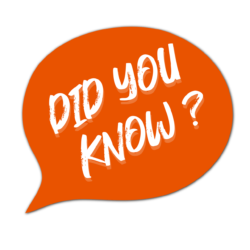
Did you know??????
1. The longest word in the English language is probably the 45-letter- long lung disease pneumonoultramicroscopicsilicovolcanoconiosis. However, hippomonstrosesquipedaliaphobia, one of the terms for “fear of long words,” is also interesting!
2. Who said there is no word that rhymes with orange? Fear not, poets, sporange is a sac that spores come in.
3. An ambigram is a word that looks the same from various orientations. For example, the word swims looks the same if you look at it upside down.
4. A new word is created every 98 minutes.
5. The shortest actual sentence in English is the command Go, where the subject (you) is implied.
6. The longest common word whose letters are in alphabetical order is almost. (I don’t know what constitutes a common word.)
7. An isogram is a word in which each letter appears the same number of times: time (once), toot (twice), etc.
8. The longest single-word palindrome is tattarrattat, invented by Joyce in Ulysses. It is the sound of knocking on a door.
9. E is the most common letter. Other common letters are T,A,O,I,N,S,R.H,L,D, and C. Eighty percent of our words contain one or more of those letters.
10 The oldest and shortest word is I.
11. Shakespeare added 1700 words to the English language.
12. Fiction readers have larger vocabularies than nonfiction readers.
13. The ampersand used to be the 27th letter of the alphabet.
14. The word whatever ranks as the most annoying.
15. The United States has no official federal language, although some states have adopted English as theirs.
16. Capitonyms are words that have a different meaning when capitalized, for example turkey and Turkey.
17. More words begin with S than any other letter.
18. The word good has 380 synonyms.
19. Good is also the most common adjective in the English language.
20. Want to win at Scrabble? The word caziques earned the most points ever in tournament Scrabble. It refers to tribal chiefs of clans located in Mexico and the West Indies.
21. The most common words in English are the (no surprise), the various forms of the verb to be, a, of, to, in, I, and you.
22. If you write out all the numbers in order, you would not use the b until you got to one billion.
23. The antihistamine Hydroxyzine is the only word in the English language that has x. y, and z in order.
24. The word queue doesn’t need the last four letters! It used to have a different meaning: the tail of a beast in medieval pictures and designs.
25. The shortest non-elliptical (no words are left out) sentence is “I am.” (What about “I go” or “I do”????)
26. The most common noun is time.
27. Most average speakers of English know 20 – 35 thousand words.
28. The word set has 430 definitions and takes up 24 pages in the Oxford English Dictionary. Run and go also have many, many meanings.
29. One of the three longest words that doesn’t repeat a letter is uncopyrightable. The others are misconjugatedly and dermatoglyphics.
30. The closest living language to English is Frisian, spoken in three small areas of Germany and the Netherlands.
***********
Thank you to the following websites:
Interesting Facts About English



I thought you might like to know that the ampersand got its name from the way the alphabet was learned by rote, so after that 26th letter (z) there was “and, by itself, ‘and.” ‘By itself’ in Latin, is ‘per se’ so the alphat finished with, “and, per se, ‘and,” which contracted to ‘ampersand.
What a crazy language we speak!
Thanks for corralling these bits of tid.
Thank you, Jags. Interesting to know!!!!